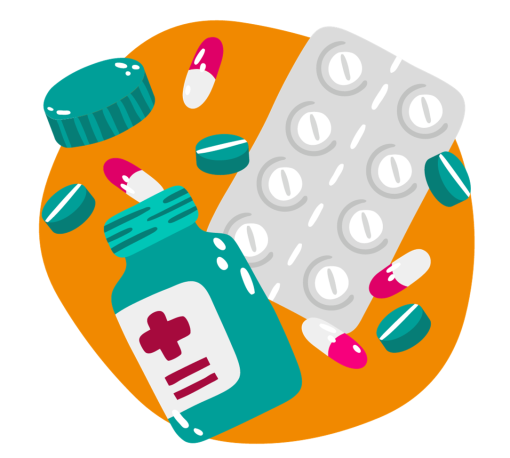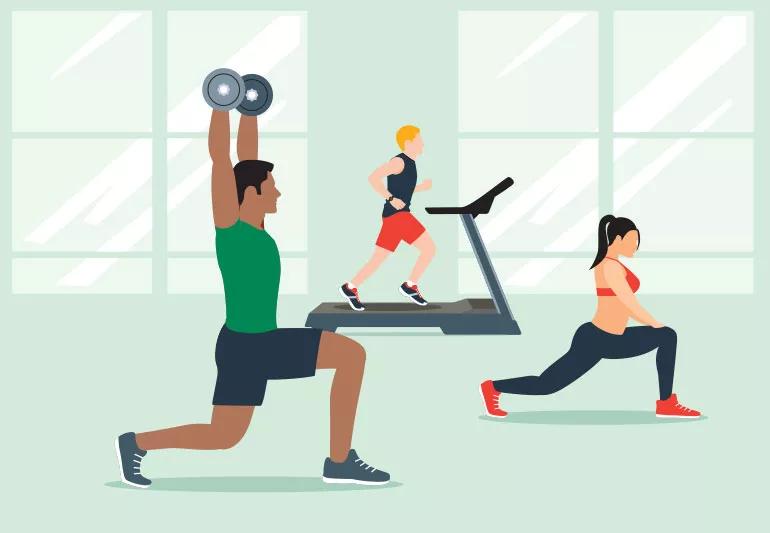
Anxiety and depression are prevalent mental health conditions that impact millions of individuals worldwide. The importance of seeking resources for coping with these challenges cannot be overstated. In this article, we will explore 10 essential resources that can help in managing anxiety and depression effectively.
Therapy Options
Cognitive Behavioral Therapy (CBT)
Cognitive Behavioral Therapy (CBT) is a widely used therapeutic approach that has been proven effective in managing anxiety and depression. By addressing negative thought patterns and behaviors, CBT helps individuals develop healthier coping mechanisms. The benefits of CBT include improved self-awareness, emotional regulation, and problem-solving skills.
Medication
Antidepressants and anti-anxiety medications
Antidepressants and anti-anxiety medications are commonly prescribed to individuals experiencing severe symptoms of anxiety and depression. These medications work by balancing neurotransmitters in the brain to alleviate symptoms. It is important to consult with a healthcare professional to determine the most suitable medication and dosage. Medication can also be used in conjunction with therapy for optimal results.

Support Groups
Online support groups
Connecting with others who understand your struggles can be incredibly beneficial in coping with anxiety and depression. Online support groups provide a safe space for individuals to share their experiences, receive empathy, and offer support to others. Resources such as online forums and social media groups make it easy to find reputable support groups that cater to specific needs.
Exercise and Physical Activity
Importance of physical activity for mental health
Regular exercise has been shown to have numerous benefits for mental health, including reducing symptoms of anxiety and depression. Physical activity releases endorphins, neurotransmitters that act as natural painkillers and mood elevators. Incorporating exercise into your daily routine, whether it's yoga, walking, or dancing, can have a positive impact on your overall well-being.

Mindfulness and Meditation
Explanation of mindfulness and meditation practices
Mindfulness and meditation practices involve focusing on the present moment and cultivating a sense of calm and inner peace. These practices can help individuals manage anxiety and depression by reducing stress, enhancing self-awareness, and promoting emotional regulation. Resources for learning mindfulness and meditation techniques include guided meditation apps and online courses.
Journaling and Creative Outlets
Utilizing journaling as a coping mechanism
Journaling allows individuals to express their thoughts and feelings in a safe and private space. Writing about your experiences, emotions, and challenges can help you gain clarity, process difficult emotions, and track your progress. Engaging in creative outlets such as painting, music, or crafting can also be therapeutic in managing symptoms of anxiety and depression.

Self-Care Strategies
Importance of self-care for mental health
Self-care is essential for maintaining good mental health and well-being. Engaging in activities that promote relaxation, joy, and self-compassion can help alleviate symptoms of anxiety and depression. Simple self-care practices such as taking a bubble bath, going for a nature walk, or practicing gratitude can make a significant difference in your overall mood and outlook on life.
Professional Help
Importance of seeking professional help
Seeking help from a qualified therapist or counselor is crucial for effectively managing anxiety and depression. A mental health professional can provide evidence-based treatments, personalized strategies, and emotional support tailored to your specific needs. Resources for locating mental health professionals in your area include online directories, professional associations, and recommendations from trusted individuals.

Apps and Online Resources
Overview of mental health apps
Mental health apps offer convenient and accessible tools for managing anxiety and depression. These apps provide features such as mood tracking, meditation exercises, therapy sessions, and self-help resources. Some recommended mental health apps include Headspace, Calm, and Talkspace. Utilizing online resources for mental health support can supplement traditional therapy and enhance your coping strategies.
Books and Podcasts
Recommendations for books on anxiety and depression
Reading books and listening to podcasts on anxiety and depression can provide valuable insights, inspiration, and practical tips for managing these mental health conditions. Recommended books include "The Anxiety and Phobia Workbook" by Edmund J. Bourne and "The Mindful Way Through Depression" by Mark Williams. Podcasts such as "The Anxiety Coaches Podcast" and "The Depression Files" offer informative discussions and interviews with experts in the field.

Conclusion
In conclusion, coping with anxiety and depression requires a multifaceted approach that incorporates various resources and strategies. By utilizing therapy options, medication, support groups, exercise, mindfulness, journaling, self-care practices, professional help, apps, books, and podcasts, individuals can effectively manage their symptoms and improve their quality of life. It is important to explore different options and find what works best for your individual needs. Remember that seeking help and support is a sign of strength, and you are not alone in your journey towards better mental health.
FAQs
Q: What is Cognitive Behavioral Therapy (CBT) and how can it help in managing anxiety and depression?
A: Cognitive Behavioral Therapy (CBT) is a therapeutic approach that addresses negative thought patterns and behaviors to develop healthier coping mechanisms. It can help improve self-awareness, emotional regulation, and problem-solving skills.
Q: Are antidepressants and anti-anxiety medications effective in treating anxiety and depression?
A: Antidepressants and anti-anxiety medications are commonly prescribed to alleviate severe symptoms of anxiety and depression by balancing neurotransmitters in the brain. They are often used in conjunction with therapy for optimal results.
Q: How can online support groups help individuals coping with anxiety and depression?
A: Online support groups provide a safe space for individuals to share experiences, receive empathy, and offer support to others facing similar challenges. They offer a sense of community and understanding.
Q: Why is physical activity important for mental health, particularly in managing anxiety and depression?
A: Regular exercise releases endorphins, which act as natural painkillers and mood elevators. It can reduce symptoms of anxiety and depression by promoting overall well-being and improving mental health.
Q: What is the significance of mindfulness and meditation practices in managing anxiety and depression?
A: Mindfulness and meditation practices focus on the present moment, reducing stress, enhancing self-awareness, and promoting emotional regulation. They can help individuals cope with anxiety and depression by fostering a sense of calm and inner peace.
Q: How can journaling and engaging in creative outlets assist in coping with anxiety and depression?
A: Journaling allows individuals to express thoughts and emotions, gain clarity, and track progress. Engaging in creative outlets like painting or music can be therapeutic and help process difficult emotions.
Q: Why is self-care essential for individuals dealing with anxiety and depression?
A: Self-care practices promote relaxation, joy, and self-compassion, which can alleviate symptoms of anxiety and depression. Prioritizing self-care activities can improve overall mood and well-being.
Q: What benefits can individuals gain from seeking professional help for anxiety and depression?
A: Seeking help from a qualified therapist or counselor provides evidence-based treatments, personalized strategies, and emotional support tailored to individual needs. Professional help is crucial in effectively managing anxiety and depression.
Q: How can mental health apps and online resources aid in coping with anxiety and depression?
A: Mental health apps offer tools like mood tracking, meditation exercises, therapy sessions, and self-help resources for managing symptoms. Online resources supplement traditional therapy and enhance coping strategies.
Q: How can individuals benefit from reading books and listening to podcasts on anxiety and depression?
A: Books and podcasts provide valuable insights, inspiration, and practical tips for managing anxiety and depression. They offer a wealth of information and expert advice to support individuals in their mental health journey.


0 Comments